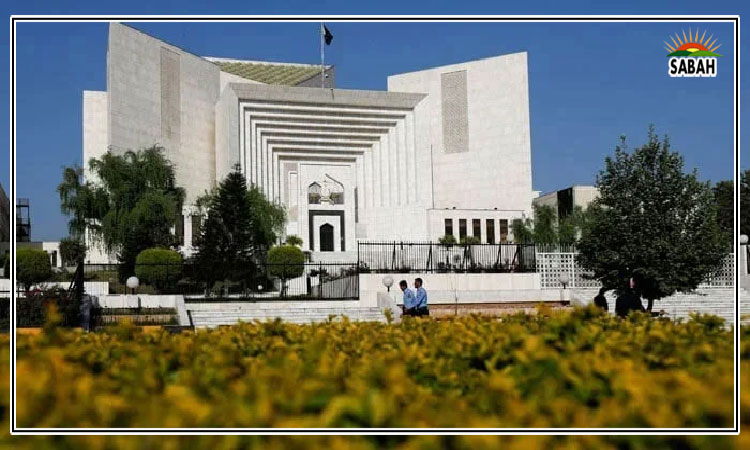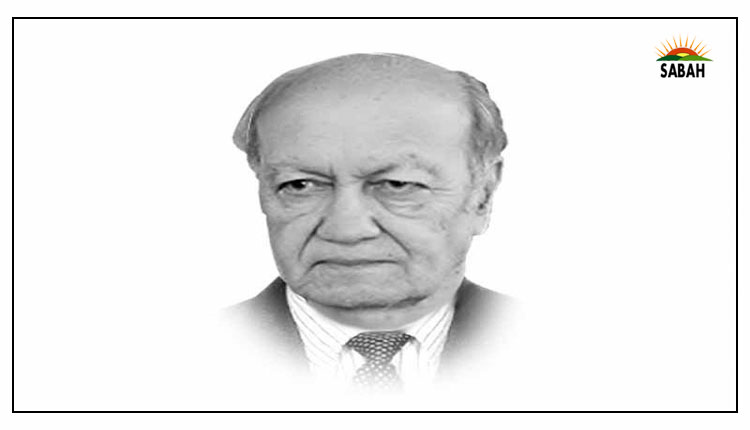Stay off the Irsa minefield…Abbas Nasir
AFTER the Feb 8 elections and the events preceding it left Pakistan badly divided, unwelcome developments are taking place which could severely strain the federations unity. It is incumbent on the forces driving this agenda to step back and rethink their priorities.
The question of whether or not the National Finance Commission awarded way too much to the provinces is being debated these days. A healthy debate can ensue with writers and thinkers on the economy weighing in on maintaining or curtailing the provinces share of national resources.
While such a debate is welcome, any move to bulldoze a unilateral decision that lacks the full backing of the federating units will exacerbate divisions and the sense of alienation that sizeable chunks of the population are experiencing after a disputed election.
A vibrant federation that guarantees the rights of all federating units is a prerequisite for national unity. Where there are widespread complaints and allegations of many people feeling disenfranchised, an arbitrary attempt to enforce a pro-centre financial solution will not help.
A number of experts, including Dawn columnist Khurram Husain last Thursday, have argued that blaming the provincial share for the financial woes of the centre may be an oversimplification as there are many other areas that need to be looked at, the most fundamental being tax reform. Khurram Husain makes a compelling case that raising the issue of the provinces profligacy to explain the federal resource crunch is a red herring.
A vibrant federation that guarantees the rights of all federating units is a prerequisite for national unity.
Also, respected economist Dr Hafiz Pasha told DawnNews that, as it is, revenue collected under certain heads, for example the non-tax petroleum levy of some Rs500 billion this year alone, sits outside the Federal Divisible Pool from which the provincial allocations are made.
He wouldnt go into the details but one got a sense that other such creative solutions are or will be in place to significantly reduce the overall size of the pool. These solutions have been found because it was mandated in the 18th Amendment that subsequent NFC Awards cannot reduce the provinces share below 57.5 per cent of the Federal Divisible Pool in the seventh award, as agreed to.
This is such a political hot potato that the current or seventh award was supposed to end in 2014-15, but despite the formation of the eighth, ninth and 10th NFCs, no new award has been possible after the passage of nine years since the supposed expiry of the last award.
Dr Pasha does not find the provinces blameless and said it was disappointing that the provinces made little to no progress in initiating a sales tax on services, agriculture income tax and the urban immovable property tax, all of which together constitute some 88 per cent of the economy.
Other observers have said that already the provinces are crying hoarse over the shortfall of transfers from the centre in their 57.5pc share but have been stonewalled by Islamabad. While reduction by stealth erodes the provincial share and is bad enough, any attempt to ride roughshod with more cuts will place a huge stress on the federations fabric an (unnecessary) insult added to injury.
Tragically, it appears, that those driving the agenda at the centre seem so intoxicated with power (or their perception of it) that they seem oblivious to the considerations of the more prudent sections of the power corridors.
Not sure if you followed the row over the now-withdrawn appointment of an outside person, a former civil servant known for his advocacy for Kalabagh dam in the past, as the chairman of the Indus River System Authority. Normally, as per Irsa rules, the members are elevated to the chairmans position by rotation for a fixed short tenure. Irsa was set up and these rules agreed to after the March 1991 Water Apportionment Accord was signed by the provinces for implementation.
It was approved by the Council of Common Interests the same month in 1991, despite Sindhs pleadings (and Balochistans objections) that it was not receiving its share of the Indus water as was evident from the incursion of seawater into the riparian end, leading to an ecological disaster. Even where the accord did not fully address these fears it served as a venting platform and assuaged the concerns of the smaller provinces somewhat.
Things ran relatively smoothly for nearly a quarter of a century. Then came the caretaker government of Prime Minister Anwaar-ul-Haq Kakar. It overstepped its remit by amending the Irsa rules and provided for the appointment of an outsider or a non-member as chairman.
The fallout of this decision hit the incoming prime minister, Shehbaz Sharif, when the PPP, with whose support he formed a government in Islamabad, protested against the appointment of the former civil servant and supposed expert, Zafar Mahmood. Given the intensity of the PPPs objections the order was withdrawn.
This wasnt all. It isnt clear who pushed it but in January this year Irsa issued a water availability certificate allowing for the supply of water on top of Punjabs share to irrigate the desert lands of Cholistan in south Punjab. This disregarded Sindhs legitimate claim to a particular volume of the southern flow of Kotri Barrage.
The Sindh caretaker chief minister Maqbool Baqar had protested and asked Mr Kakar to stop any action regarding this certificate till the elected governments were in place and able to decide this thorny issue through consensus. Please do read Mohammad Hussain Khans top-drawer piece in Thursdays Dawn, detailing Sindhs case.
At a time when there is a massive spike in terrorism in the border areas and law and order is a priority, as it directly impacts the economys revival, these decisions are creating unease and discomfort in the water-starved provinces.
It is easier to manage elections and usher in compliant governments but far more difficult to manage strife when matters of life and death are dealt with in an arrogant manner.
Courtesy Dawn












